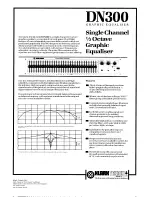
Chapter 8: Using Match Rules
220
Equalizer Installation and Administration Guide
debug_message(
string
)
This
function always evaluates to
true
. It writes the
string
argument
to the Event Log for the cluster (
View > Event Log
).
This function can be logically ANDed and ORed with other
functions to write debug messages.
Use this function for testing
and debugging only. Do not use it in production environments,
since it has a negative impact on performance.
ignore_case()
This function always evaluates to
true
, and is intended to be
used to apply the
ignore_case
flag for comparisons when it is
not set
on the cluster. When this function is ANDed with other
functions, it has the effect of forcing case to be ignored for any
comparisons done by the match rule.
observe_case()
This function always evaluates to
true
, and is intended to be
used to override the
ignore_case
flag for comparisons when it
is
set
on a cluster. When this function is ANDed with other
functions, it has the effect of forcing case to be honored for any
comparisons done by the match rule.
http_09()
This function takes no arguments and evaluates to
true
if the
HTTP protocol used by the request appears to be HTTP 0.9. This
is done by inference: if an explicit protocol level is absent after
the request URI, then the request is considered HTTP 0.9.
method(
string
)
This function evaluates to
true
if the
string
argument exactly
matches the Request Method (e.g., GET, POST, etc.) specified in
the request. Note that by default Equalizer forwards packets to
servers without determining whether or not the method specified
in the request is valid (i.e., is a method specified in Section 9 of
RFC2616). One use of the
method
() function is to be able to
override this default behavior and prevent invalid requests from
being forwarded to a server.
ssl2()
HTTPS only. This function evaluates to
true
if the client
negotiated the encrypted connection using SSL version 2.0.
ssl3()
HTTPS only. This function evaluates to
true
if the client
negotiated the encrypted connection using SSL version 3.0.
tls1()
HTTPS only. This function evaluates to
true
if the client
negotiated the encrypted connection using TLS version 1.0.
header match functions
See “Match Function Notes” on page 223, for the headers that
can be specified in these functions.
header_prefix(
header
,
string
)
This function evaluates to
true
if the selected
header
is present
and if the string-valued argument
string
is a prefix of the
associated header text.
header_suffix(
header
,
string
)
This function evaluates to
true
if the selected
header
is present
and if the argument
string
is a suffix of the associated header
text.
header_substr(
header
,
string
)
This function evaluates to
true
if the selected
header
is present
and if the string-valued argument
string
is a sub-string of the
associated header text.
non-URI Match Function
Description
Summary of Contents for E350GX
Page 18: ...Chapter Preface 18 Equalizer Installation and Administration Guide ...
Page 38: ...Chapter 1 Equalizer Overview 38 Equalizer Installation and Administration Guide ...
Page 80: ...Chapter 4 Equalizer Network Configuration 80 Equalizer Installation and Administration Guide ...
Page 110: ...Chapter 5 Configuring Equalizer Operation 110 Equalizer Installation and Administration Guide ...
Page 208: ...Chapter 7 Monitoring Equalizer Operation 208 Equalizer Installation and Administration Guide ...
Page 240: ...Chapter 8 Using Match Rules 238 Equalizer Installation and Administration Guide ...
Page 262: ...Appendix A Server Agent Probes 258 Equalizer Installation and Administration Guide ...
Page 274: ...Appendix B Timeout Configuration 270 Equalizer Installation and Administration Guide ...
Page 280: ...Appendix D Regular Expression Format 276 Equalizer Installation and Administration Guide ...
Page 310: ...Appendix F Equalizer VLB 306 Equalizer Installation and Administration Guide ...
Page 318: ...Appendix G Troubleshooting 314 Equalizer Installation and Administration Guide ...
















































